Putin's endgame: what he's waiting for, and why he might get it.
The Russian leader is hoping American voters will bail him out of the ditch he's in.
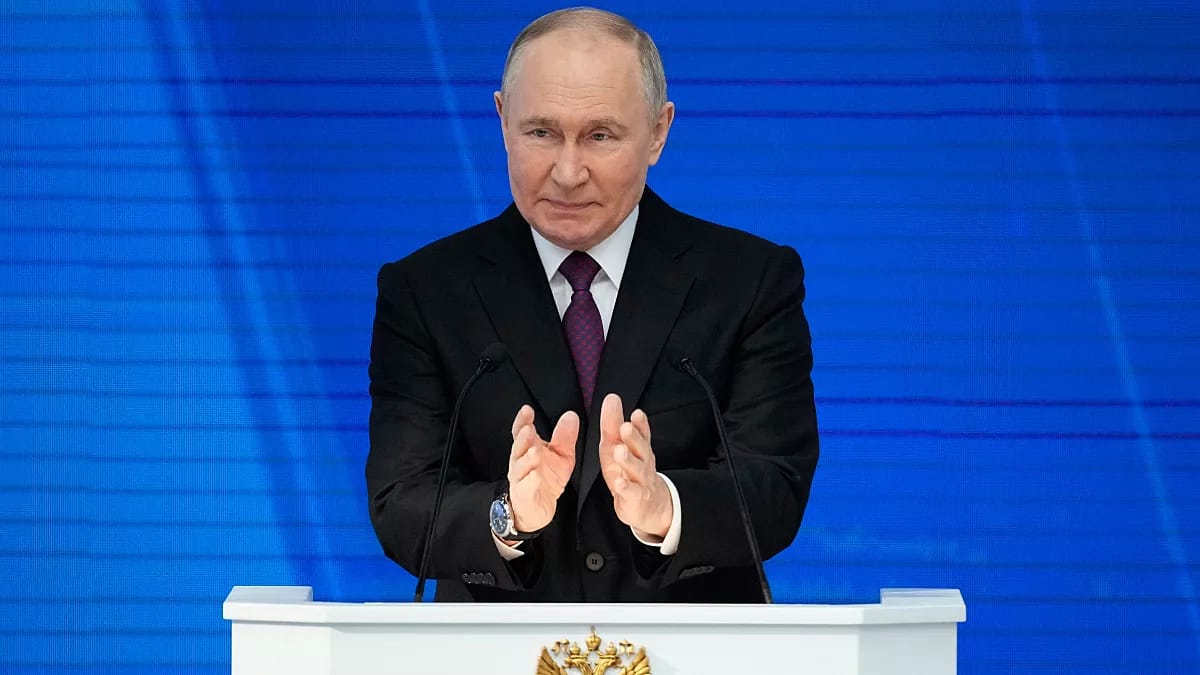
It's been a while since I've written about my old "friend" Vlad Putin. I'd like to think I know a little bit about the mercurial Russian leader, as I've done some historical study on him (and have tried to inform others about it). It's now been a bit more than two years since Russia's invasion of Ukraine, a war that drags on (as I predicted a year ago) with no end in sight. A few weeks ago Putin "won" a fifth term as Russia's president, in an election that was rigged, though given his tight control of Russia's media and political system he could probably have won even without ballot-stuffing. As our own (U.S.) elections are looming later this year, I thought it was worth a column to examine Putin's overall geopolitical strategy. The lens of history is, as usual, the key to understanding it, and him. Putin's behavior, his means of conducting policy and his ultimate goals have, I think, made the world much more dangerous than it's been at any time since the 1930s, and depending on what American voters do in 2024 and what Putin does in response, we could be headed, fairly soon, into a period of protracted chaos and potentially widespread military conflict.
I've steadfastly maintained for years that the key to understanding Putin is to see him as a continuation of Russian rulers of the past, particularly the tsars. Despite rhetoric you hear in Western media, Putin is not a Communist and doesn't want to re-institute the Soviet system. What he does want to do, and has repeatedly demonstrated that he wants to do, is to reassemble the old Russian empire as it existed in the time of the tsars. Any part of the world that is, or once was, under Russia's dominion–with the possible exception of Alaska–is something he wants to control. This is why he wanted the Crimea in 2013/14, and Ukraine in 2022. He sees his historical mission as reassembling the "old" Russia and passing it, as a complete whole, to whoever his successor is. And he's quite willing to risk military conflict with the West to do that, for the simple reason that he doesn't believe Western countries will do much, in the end, to stop him. He may be right.
Putin has not been able to win outright in Ukraine due to a number of factors. Russia's military is far weaker than even he realized, and Western countries have, to date, propped up Ukraine with military aid. Why, therefore, is he still entrenched there? The answer is pretty simple. He's hoping the 2024 U.S. election will return Donald Trump to power. If he becomes President again, Trump will, almost immediately, do two things that will inure to Russia's benefit: he'll shut off the tap of military aid to Ukraine, and he will withdraw the United States from the NATO alliance, which will fatally shatter it. With those two impediments gone, Putin figures he can squeak out a military victory against Ukraine, consolidate his position and rebuild his military (while sucking up all of Ukraine's resources), and then move against his next target(s). The small fry countries like Moldova may be first. But the Baltic states, Estonia, Latvia and Lithuania, which are members of NATO, are undoubtedly on his wish list too. If the shreds of the NATO treaty are floating in the toilet, there will be very little political will to stop Putin from absorbing those countries too. At that point even Poland may be a target.
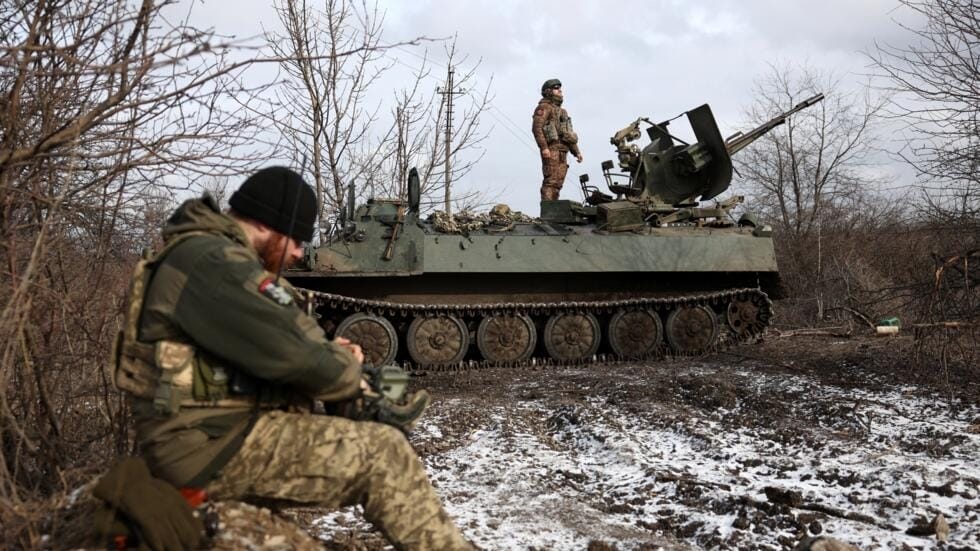
Until now, whenever anyone floats the idea of Putin taking over the Baltics, the usual objection is a scoff: "Those are members of NATO! Putin won't risk an all-out war with Western countries." That's a good objection, and it's precisely why Putin has been working for years to undermine NATO. Donald Trump, who is far too stupid to understand even what NATO is, much less how it works, has long been an enemy of the organization because he thinks it means the United States is paying money for the defense of European countries who are ungrateful mooches. That's far from the truth, but it doesn't matter. Putin is more than willing to exploit Trump's ignorance if it means a unilateral American withdrawal from the alliance. Without the American military umbrella, who does that leave as the most powerful country in Western Europe? Germany? Certainly not the UK, which has been fatally weakened by the fallout from Brexit. Once Trump tears up NATO, Putin has a green light to dominate Europe, economically and, if he chooses, militarily.
Another usual objection to the idea of Putin's aggressive expansionism is a very old one: the nuclear deterrent. The argument goes, why would Putin risk nuclear conflict with the West to get the Baltic states, or Poland, or something else he wants? Well, three reasons. First, Putin probably figures the risk is small. In the final analysis, would a U.S. President or UK Prime Minister really push the button to save Estonia from Russian domination? Especially if the price of doing so is some form of Russian nuclear retaliation, even a limited one? Second, if NATO goes away, former NATO countries are no longer bound by the treaty obligation to come to the defense of a member if it is attacked–meaning that the few ex-NATO countries who do have nuclear weapons of their own, like Britain, will each be making the push-the-button-or-not calculus on their own. In 1938, UK Prime Minister Neville Chamberlain dismissed the idea that preventing Nazi Germany from taking over Czechoslovakia was worth the bones of a single British soldier. Putin is counting on a similar calculus in the future. Third, more than 30 years on from the end of the Cold War, no one has any idea of the real operational strength of any country's nuclear arsenal anymore. Even if a political leader decided to push the button, if he or she does so, it's quite possible that nothing will happen. We're pretty far from the early-1980s paradigm of "mutually assured destruction." Putin knows that.
Furthermore, Putin doesn't have a whole lot left to lose. He will turn 72 this year and, as with most dictators, there are perennial rumors that he's in poor health. It kind of doesn't matter whether he is or not–he'll still be in power until he dies, whether that's in 2026 or 2046. He's not grooming an obvious political successor. Unlike the tsars, who were constrained by trying to keep the Russian monarchy intact, Putin has no crown to pass on to one of his children. Unlike Stalin, with whom he's often compared (including by me), Putin has no revolution to defend and no ideology to validate. Once he's dead, he doesn't give a damn what happens, to himself, his family or to Russia. This leaves him uniquely unfettered by the threat of any consequences. Worst case scenario: he provokes a full-on nuclear war and Russia is reduced to a pile of smoldering radioactive ashes. So what? He's going to die anyway, probably in not too many years, and at least he will have tried to play the big game and win the big stakes. At the end of his life, Stalin too was apparently unafraid of nuclear confrontation with the West. Yet, if his bid is successful, he could at least die while sitting on top of the most powerful and expansive Russian state in centuries. Given the cold-bloodedness with which Putin has made most of his past decisions, I think it's safe to say he's willing to take these sorts of gambles.

What if Trump is not returned to power? A Trump defeat in November won't be a silver bullet that will de-fang Putin forever; far from it. Putin will still have to deal with economic sanctions on Russia (for which he is fully prepared), and, if NATO stays intact for the time being, he will have to come up with some other way to undermine it, or else wait for 2028 in the hope that a Republican who might get elected that year–Trump will almost certainly be dead by then–will help him out. Those are more speculative outcomes. Putin clearly thinks that a favorable outcome for him in the 2024 election is worth the gamble of continuing the war in Ukraine, whatever it costs him in the meantime. That he thinks the odds favor him, or at least are worth testing, should give us pause.
Historically speaking, U.S. Presidential elections often have profound geopolitical consequences, but those are very rarely a significant part of the mix when voters go to the polls. Who could have known, for example, that in the year 2000, the choice between Gore and Bush–which was a difficult one for many voters–was really the choice about who would be in charge of the country at the time of 9/11 and its aftermath? I doubt very few American voters this year will go to the polls thinking, "Gee, which of these choices is going to make life harder or easier for Vladimir Putin?" But that is, I think, part of the choice. That likely so many world-changing consequences hinge on a decision between candidates that most Americans dislike is one of the ironies of history. Voters are not generally good at thinking through long-term implications. But this is, unfortunately, where we are in history.
The Value Proposition
Why should you be reading this blog, or receiving it as a newsletter? This is why.
☕ If you appreciate what I do, buy me a virtual coffee from time-to-time to support my work. I know it seems small, but it truly helps.
📖 You could also buy my newest book.
🎓 Like learning? Find out what courses I’m currently offering at my website.
📽 More the visual type? Here is my YouTube channel with tons of free history videos.
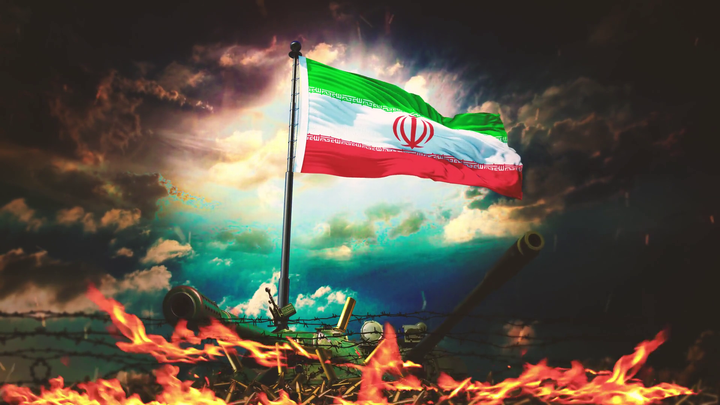
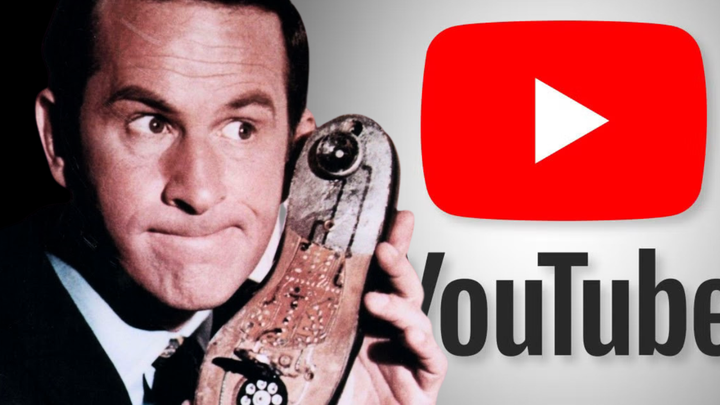
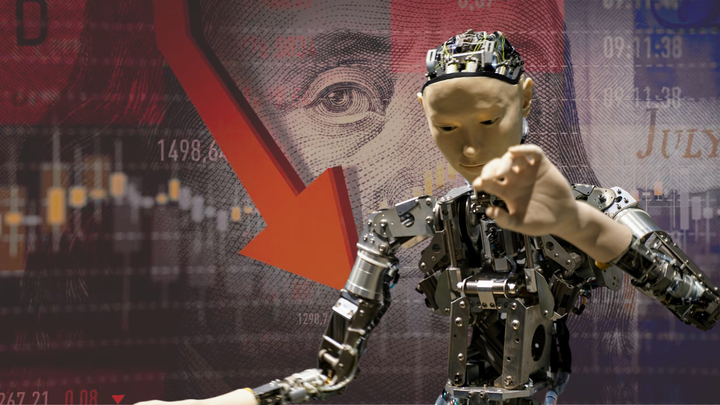
Comments ()